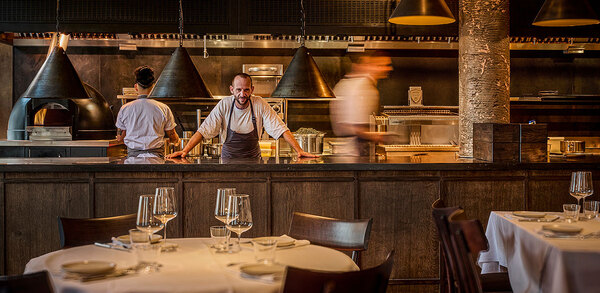Viewpoint: Visa fee rise is another obstacle in the uphill battle to recruit skilled workers
When the criteria for visas for skilled workers leaves out most front of house staff too, who will be left to serve the coffee? Zoe Adjey asks
The UK hospitality industry is poised to be hit hard by a 15% rise in skilled worker visa fees, which came into effect on 4 October. With Brexit already drastically reducing the pipeline of EU workers, the sector has been battling chronic staff shortages. The further barriers created by costlier visas will only exacerbate these issues, inflicting pain on hotels, restaurants, bars and other hospitality businesses. A key concern is that the higher visa fees could deter the skilled workers the industry relies on from taking jobs in the UK.
Hospitality roles such as chefs, managers and sommeliers have been historically heavily filled by staff from overseas. This makes it much more difficult for businesses to fill vacancies, worsening the existing skills shortage.
Many hospitality companies, especially smaller independent operators, will also struggle to absorb the additional cost per overseas employee. With budgets already stretched thin by inflation and energy costs, the extra visa expense will limit their capacity to recruit abroad. Many small businesses will not have the capacity to do so.
The staffing shortages created by declining visa applications will have far-reaching consequences. Businesses may be forced to reduce operating hours or curtail services if they simply do not have the workers to run at full capacity. In severe cases, some establishments may even face full closure.
To attract and retain the limited workers that do get visas, businesses will also have to improve pay and benefits packages, raising wage costs substantially. This added expense may get passed on as higher prices, negatively impacting hospitality's competitiveness and affordability.
Understaffing also often translates into poorer customer service and decreased revenues. If businesses cannot deliver quality experiences due to lack of staff, they turn away customers and suffer reduced profits.
However, there are other concerns with the UK visa system. As outlined by the UK Visa and Immigration service, updated in August 2023, eligible Skilled Worker Visa Occupations in hospitality include restaurant, café, takeaway and pub managers and proprietors as well as chefs but not cooks. This list omits operational staff in front of house roles, which also require skilled workers, leaving a wide and gaping skills hole with literally no one to make a coffee! At some point the government will have to recognise that our entire sector is “skilled”.
When combined with the other rising costs hospitality firms face, such as food, utilities, interest rate rises, the extra visa cost could push some over the edge financially. Even businesses that survived the pandemic may struggle to remain viable.
The government must look at ways to ease visa restrictions. If there are no interventions, Britain may lose international talent and hospitality capacity, as skilled workers look to move to countries with lower cost of living and less visa expense. With no easy fix available, the upcoming visa fee hike represents a major challenge for an already beleaguered sector.
Our industry is the third largest employer in the UK, providing jobs for over three million people. Mass closures and staff shortages could therefore have a devastating impact on livelihoods and communities across Britain. The upcoming visa fee hike adds a steep gradient to the already uphill battle hospitality faces in attracting skilled workers post-Brexit. Unless the system is overhauled, the UK risks losing the very virtues that made its hospitality sector world-class and recognise its skilled staff who provide superb service. The time has come for government interventions enabling hospitality to thrive again.
Zoe Adjey is a senior lecturer in tourism and hospitality at the University of East London



















